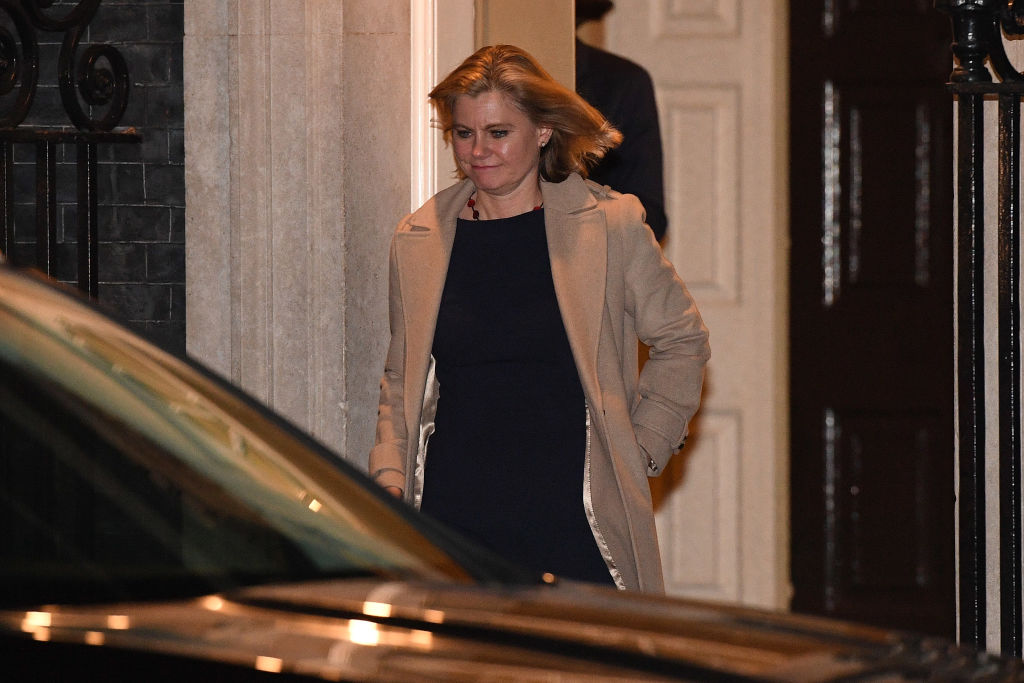You could, I suppose, feel sorry for Justine Greening if you were a nicer person than me, not just for losing her job, but for being in the job after it had been occupied by Michael Gove. Mr Gove had the radical, indeed revolutionary perception that it was a scandal that there should be such a gulf in expectation and outcomes between state and private schools. And he acted on that basis – the best bit of his programme, in my view, being his hardening up of the curriculum, so state school pupils don’t get fobbed off with dud qualifications in dud subjects. Exams are harder, and harder to pass than they were; with every fall in the pass rate, I cheer up more.
Justine Greening, someone tell me, what did she ever do at Education? She maintained that she had a mission to increase social mobility, but the best way to do that, as Mr Gove did, was to impose on state schools some of the expectations about outcomes that characterise the private sector. I have two children at state schools, and Justine Greening has had, I would say, no effect whatsoever on their education, though I suppose the increased emphasis on diversity in terms of sex education may have come from her. When she left, assorted pundits lamented the departure of the first openly gay woman Cabinet member. God, how do I not give a toss about her being a lesbian, though I suppose it helps that she went to a comprehensive. I can’t see much reason to dispute the contention of Nick Timothy, Mrs May’s former chief of staff, that, ‘charged with making Britain ‘the world’s great meritocracy’, she put the brakes on policies that work, like free schools, and devised bureaucratic initiatives of little value’. She is said as well to have resisted opening more grammars.
But it now appears that Ms Greening was more actively rubbish than this. Another reason for her departure was, it seems, that she was reluctant to go with measures designed to expand the number of government-funded Catholic schools, which Mrs May backed. Justine’s approach, to order a public consultation, was tantamount not just to kicking it into the long grass, but inviting every secularist bore in Britain to obstruct the proposal. Some Catholic schools are rubbish, but the good ones are very good indeed; we need more of them, not fewer. And a Tory Secretary of State with an animus against church schools really shouldn’t be in the job.
We also need a return to Gove’s insistence on narrowing the divide between state and private schools. You reckon it’s a non-issue, do you? Well, my daughter is applying for a place at secondary school, and has been through the tests designed to stream applicants for state schools. Six ruddy times we had to stand outside school entrances waiting for her to emerge – and if you want to contemplate London’s rich ethnic and religious diversity there is no better place to do it – only for her to chirrup ‘Easy Peasy!’ when she did. As did all her little friends. They had to put risibly easy numbers and patterns in a sequence, say that a triangle was not a quadrilateral; actually the only test that seemed mildly demanding was the requirement by one school that they write a passage to follow the words, ‘The door opened…’.
Meanwhile, there is another world out there. The children who were applying for private schools looked a bit more tense before Christmas. They had tutors and private sessions with Oxbridge graduates. Their anxious mothers compared notes; there was triumph when one girl got through to the second round for interviews to St Paul’s. There was, you see, the possibility of failure.
Now the two tests were designed for different purposes: one to stream by ability, the other to screen pupils by ability for admittance to the school. But it is a reminder that there are sheep and goats out there. So, when Mrs May next talks about opening new grammars or raising the bar on exam standards, and you get the inevitable tsunami of hostile comment from pundits complaining that this makes failures out of young children, well, here’s what to do: get them to declare, at the outset, whether they have or had a dog in the fight. Ask them to make clear if they went to a state school or whether their children or grandchildren are at them. That’s right: you, Patience Wheatcroft, you, Polly Toynbee, you Diane Abbott, you, David Cameron.
I’ve got great hopes, mind you for Damian Hinds, after Michael Gove said he represented a form of conservatism in which ‘the Catholic church has a part to play and authority is tempered with mercy’. He’s state school educated, too. He’s not a woman nor gay but you know, that’s OK by me.







Comments